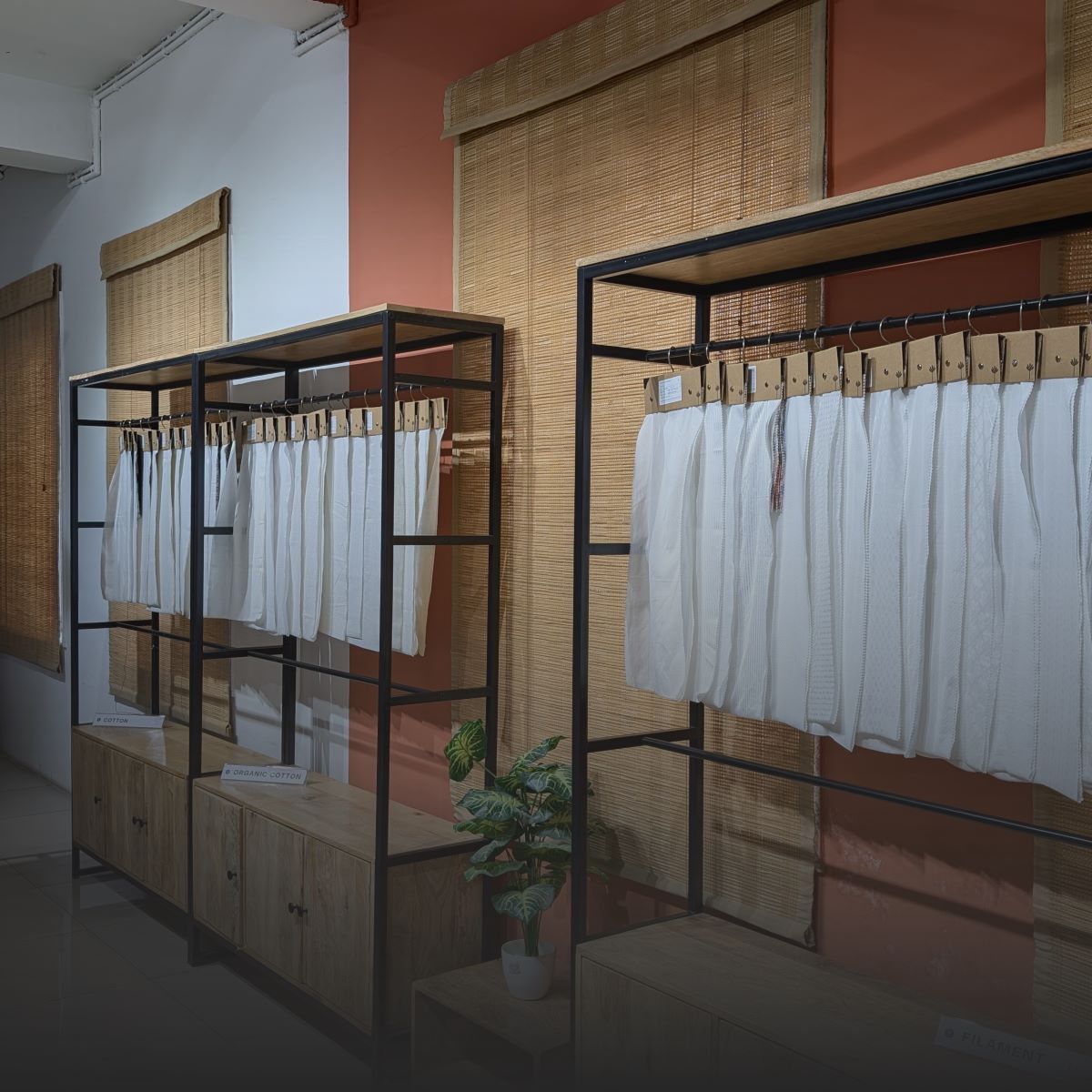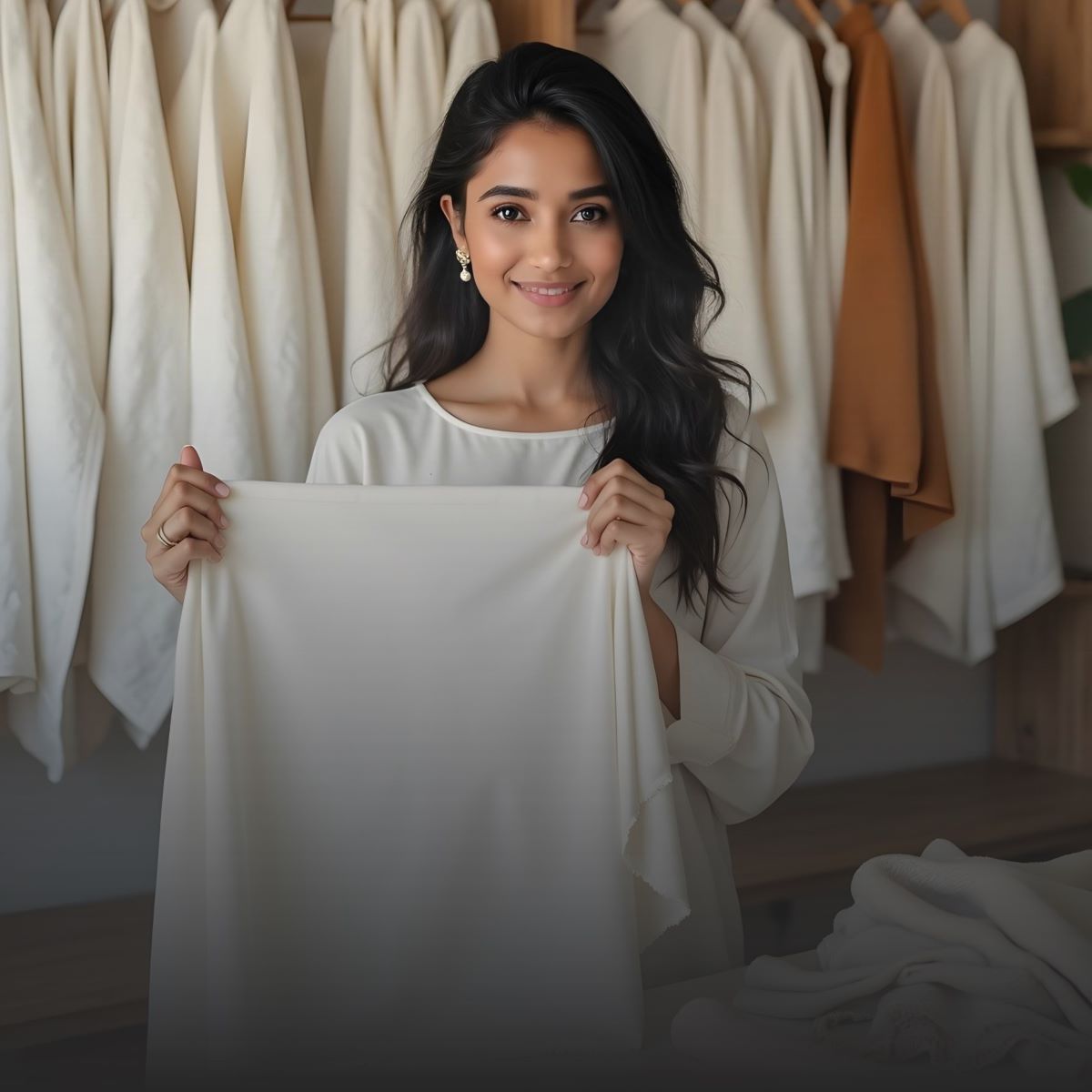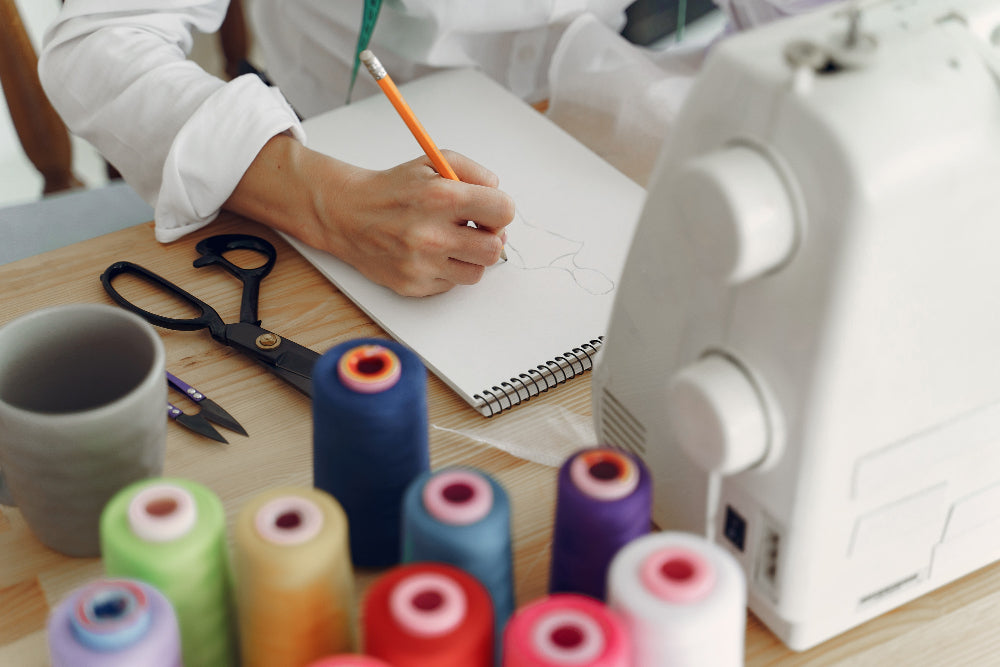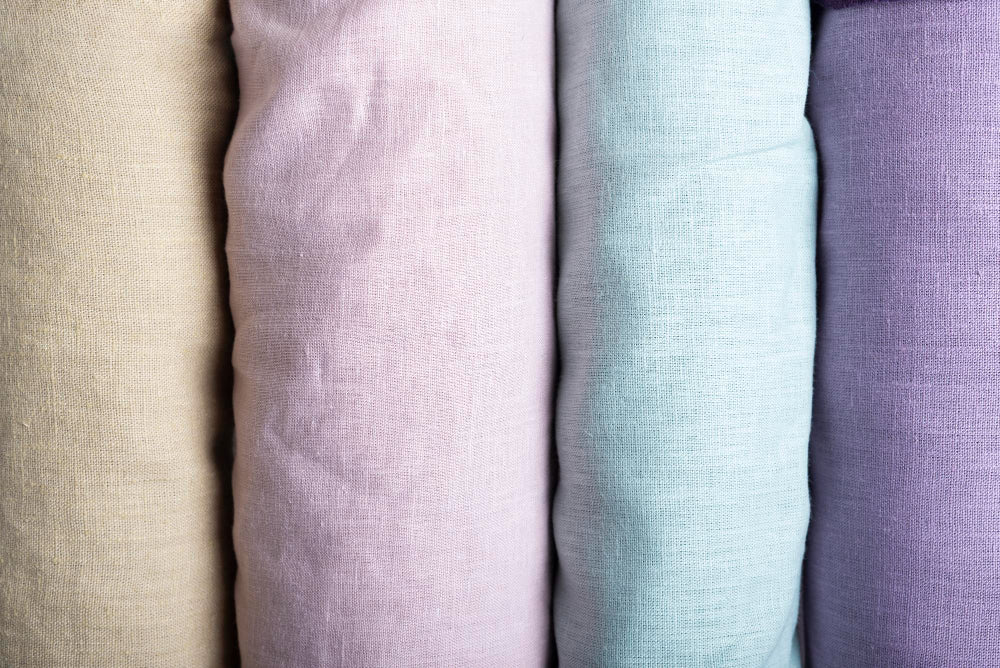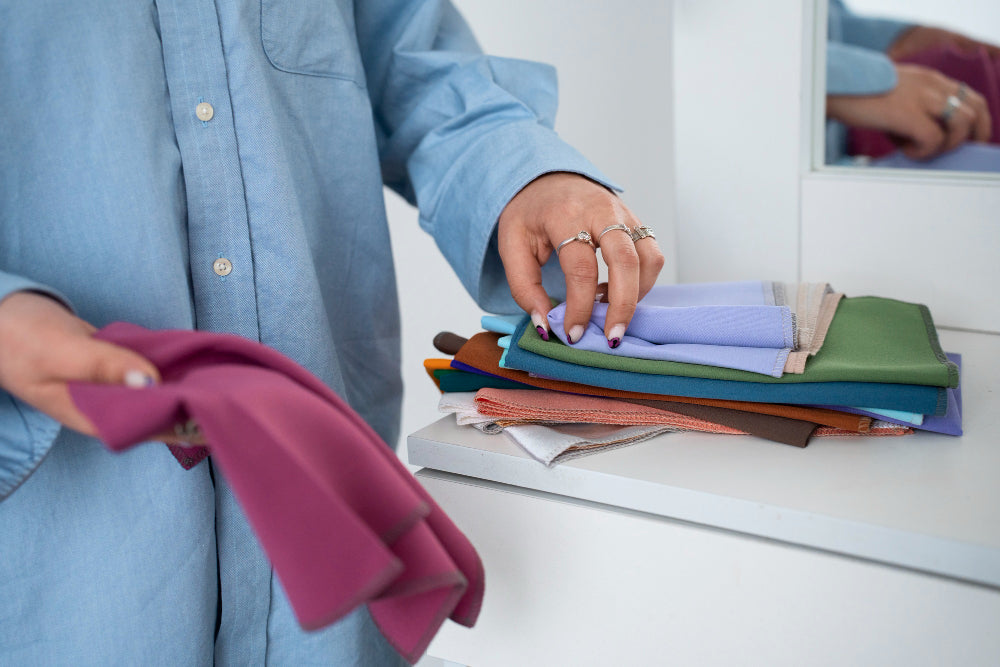The fashion industry worldwide has entered a new era in which designers seek faster delivery, more environmentally friendly production, and fully transparent supply chains. As names go global, they need reliable bulk apparel manufacturing to ensure collections maintain the same high quality.
As competition grows and processes need to be ethical and easy to track, designers now prefer integrated systems that handle everything from sourcing fabrics to customizing orders to sending out samples and delivering clothes. This change shows how important it is to work with reliable companies like Fabriclore, which is known for Wholesale Garmenting and Clothing Manufacturing and Low MOQ Clothing Manufacturing for new brands.
This article discusses how bulk manufacturing works, the most significant problems that arise, how to choose a partner, and the benefits of global systems that work together.
Understanding Bulk Apparel Manufacturing for International Designers
Bulk apparel manufacturing converts design ideas into global quality, fit, and compliance-compliant garments. It's harder to be precise when developing fabrics, making patterns, making samples, sewing, finishing, and sending clothes overseas when you're making a lot of clothes.
This system becomes the foundation of an international designer's brand, letting them grow steadily through partnerships in e-commerce, wholesale, and private label. It also enables you to buy bulk fabric, choose eco-friendly fabrics, and receive fabric swatches before placing a bulk order, making it easier to assess fabric quality and make a final choice.
Key Advantages for Designers:
- Quality and size that can be predicted across large quantities.
- Less expensive to make each unit.
- Better dependability in the supply chain.
- Help for retail growth around the world.
- The ability to get sustainable textiles and approved materials more easily.
- Ability to grow without having to switch manufacturers
Why Bulk Manufacturing Matters in the Global Fashion Ecosystem
Making a lot of apparel at once isn't the only thing that bulk manufacturing does. This is a planned strategy that helps brands expand, go global, and keep their business stable.
This way, brands can plan global launches, get the best prices, and keep their delivery promises without lowering the quality of their products.
Key advantages include:
- Predictable timelines
- Consistent material quality
- Higher cost efficiency
- Stronger brand credibility
It also gives you the confidence to enter markets like Amazon, Zalando, and foreign boutiques.

The Complete Bulk Apparel Manufacturing System
Bulk apparel manufacturing is a highly organized, multi-layered process that turns a designer's idea into garments ready for export. It is essential for foreign designers who work with Low MOQ Clothing Manufacturers, Custom Clothing Manufacturers, or Sustainable Garment Manufacturers to understand this lifecycle. A well-organized system ensures consistent quality, faster approvals, lower costs, and smooth foreign deliveries. This is a must when collecting things from all over the world.
Here is a step-by-step explanation of the entire manufacturing process, with natural-sounding phrasing and greater clarity.
1 Fabric Development & Sourcing
Fabric is what makes a dress work, and the choice of fabric directly affects how it drapes, how long it lasts, and how well it performs. Access to wholesale fabric networks and certified mills that provide consistent quality is essential for making a lot of clothes.
To get RFD, greige, dyed, knitted, woven, and environmentally friendly fabrics, manufacturers work with mills. Designers can save money by buying fabric in bulk, enabling them to scale their business into foreign markets without spending too much.
2 Fabric Customization: Dyeing, Printing & Surface Development
Once the cloth base is chosen, it is adjusted to fit the designer's colour and branding needs.
Modern facilities offer eco-friendly choices, digital printing, screen printing, and Pantone-colour-matched dyeing. This is very important for brands that want to work with a Sustainable Garment Manufacturer that uses responsible production methods.
Customization ensures:
- Brand identity
- Colorfastness
- Durability
3 Pattern Making & Technical Development
For mass production, you need accurate technical files and measures.
Teams use CAD tools to create patterns and ensure consistent building standards worldwide.
This eliminates scaling errors and ensures that all thousands of pieces are identical.
4 Sampling & Prototyping
Samples are a good way to check the quality of the fit, shape, trims, and sewing.
This step ensures that everything is clear for creators working with Custom Clothing Manufacturers before they start mass production.
Proto, fit, and pre-production models help eliminate mistakes and ensure everyone knows what to expect.
5 Bulk Production & Assembly
Once the sample is approved, factories start cutting, sewing, finishing, and packing clothes.
As a Private Label Clothing Manufacturer, a facility handles brand-specific details such as custom fits, embroidered logos, and packaging.
At this stage, there are:
- Skilled operators
- Automated cutting systems
- Ethical labor compliance
6 Sustainable Manufacturing Systems
Sustainability is now a must for designers worldwide. Sustainable Garment Manufacturers are trustworthy companies that follow fair labour laws, use eco-friendly dyes, and operate their businesses in ways that save energy.
Common practices include:
- Recycled fabrics
- Organic cottons
- Non-toxic inks
- Waste reduction

7 Quality Control & AQL Compliance
Every garment is checked for quality to make sure it meets international standards.
Manufacturers check for stitching, size, colourfastness, and finishing in several steps.
AQL-based systems help ensure the quality of thousands of units remains consistent.
8 Branding, Packaging & Global Logistics
As soon as the clothes pass quality control, final branding touches are added, including labels, tags, and eco-friendly packaging.
A big part of Wholesale Garmenting and Clothing Manufacturing is working with global logistics partners to handle things like shipping, customs, and paperwork.
Benefits of Modern Global Garment Manufacturing Systems
Designers are more likely to make more products, keep things the same, and keep prices low when there is a global manufacturing system.
Benefits include:
- Centralized production
- Lower risks
- Digital tracking
- Lower costs
- High customization
- Faster market entry
Challenges in Global Garment Manufacturing
Even though it has benefits, the sector also has problems, such as:
- Raw material price volatility
- Logistics delays
- Regulatory complexities
- Demand forecasting
To lower these risks, modern factories use a variety of tools for planning and getting materials.
What Designers Must Consider When Choosing a Global Manufacturing Partner
Long-term success is guaranteed if you choose the proper global clothing manufacturer like Fabriclore.
Designers should think about:
- Quality consistency
- MOQ support
- Sampling accuracy
- Sustainable certifications
- Pricing transparency
- Export capability
- Customization flexibility
A strong partner acts like an extension of the brand.
Fabriclore as a Global Wholesale Garment Manufacturer
Fabriclore has positioned itself as a modern, hybrid production platform that combines a deep understanding of textiles with the full production of clothing. The company helps international designers who need a reliable, flexible, and creatively aligned manufacturing partner. They have more than a decade of experience in fabric sourcing, custom dyeing, printing, and garment development.
Fabriclore's unified ecosystem handles fabric development, customization, sampling, and final production, so brands don't have to deal with multiple vendors. This makes it a great choice for brands that want reliable, low-MOQ, private-label, or fully customised clothing solutions.
1 Fabric Development & Material Engineering
Fabriclore's textile ecosystem provides:
- RFD fabrics
- Greige bases
- Dyed fabrics
- Sustainable textiles
This ensures that designers receive fabrics that are consistent, ethically sourced, and traceable.
2 Customization Excellence
Fabriclore provides end-to-end customization with:
- Digital & screen printing
- Reactive & pigment dyeing
- Pantone shade matching
- Fabric finishes & textures
3 Technical Development & Sampling
Fabriclore makes ideas into scalable designs.:
- Pattern making
- CAD development
- Size grading
- Multiple sampling rounds
In this way, perfect pre-production alignment is guaranteed.

4 Apparel Production
|
Category |
Subcategories |
Fabric Options |
MOQ |
|
Men’s Wear |
Shirts, Trousers, Co-ords, Jackets, Resort Wear |
Cotton, Linen, PV blends, Denim, Jersey |
50–200 pcs |
|
Women’s Wear |
Dresses, Co-ords, Tops, Skirts, Ethnic, Lounge |
Rayon, Modal, Crepe, Tencel, Cotton |
50–200 pcs |
|
Kidswear |
T-shirts, Sets, Dresses, Onesies |
Cotton, Muslin, Jersey, Rib |
50–200 pcs |
|
Home Textiles |
Cushions, Curtains, Bedding |
Cotton, Linen, Blends |
Custom MOQ |
5 Ethical & Sustainable Manufacturing
Fabriclore is a Sustainable Garment Manufacturer that follows global ethical standards, ensuring that workers are safe, wages are fair, and processing is done in a way that doesn't harm the environment.
6 Quality Control Standards
Fabriclore uses AQL-based inspections and provides visual QC documentation for every batch, ensuring everything is clear.
7 Branding & Export Logistics
Fabriclore offers:
- Custom labels
- Eco-packaging
- Global shipping
- Door-to-door freight
It is now a full-service partner for wholesale fabric sourcing and clothing manufacturing.

Conclusion
International designers who need speed, consistency, and the ability to grow globally need to make clothes in bulk. Modern production systems lower risk, strengthen brand identity, and give designers the confidence to sell their products in more places around the world.
Fabriclore stands out as a strategic partner in this changing market because it offers bulk fabric sourcing, low minimum order quantities, custom sampling, technical development, private label solutions, and complete garment manufacturing from start to finish for global brands.
Whether you are a new designer or an international fashion label, Fabriclore can help you turn your ideas into collections that are ready to sell by making the production process clear, accurate, and ethical.
FAQ's
1. What Is Bulk Apparel Manufacturing For International Designers?
Finding fabrics, printing or dyeing them, making samples, mass production, quality control, branding, and export logistics are all part of bulk apparel manufacturing. This way, designers can sell their clothes consistently across all international channels.
2. How Small Can My Initial Order Be For A Bulk Run?
Many modern manufacturers, like Fabriclore, offer low-MOQ production, which means you can order as few as 50 to 200 pieces of each style or 300 metres of fabric. This lets small brands test collections without spending a lot of money.
3. How Do Suppliers Ensure Colour And Print Consistency At Scale?
For repeatability, the best suppliers use lab dips, Pantone matching, approved print masters, dye-lot tracking, and batch-specific QC. They also provide photographic and video QC evidence to give buyers peace of mind.
4. Can Bulk Production Be Sustainable And Ethical At Scale?
Yes. Pick partners that use certified organic or recycled fabrics, dyes that use little water, inks that are safe for the environment, and fair labour practices that can be proven. Check certifications such as OEKO-TEX and request reports on how the products were made.
5. What Should I Include In My Tech Pack To Avoid Production Issues?
Include exact measurements, notes on how to build it, seam allowances, the material used, trim codes, placement prints, wash instructions, and a list of acceptable tolerances. Good tech packs reduce the number of samples needed and speed up production.
We also happen to be a magnet for suggestions, and would love to catch yours….throw us yours on hello@fabriclore.com
Also Read These Related Blogs:
1. Apparel Manufacturing: The Relevance of Fabric Dyeing
2. Top High-Margin Apparel Categories for B2B Resale
3. 10 Best Clothing Manufacturers & Apparel Factories in New York
4. Explore Sustainable Premium Fabrics for U.S. Apparel Manufacturers
